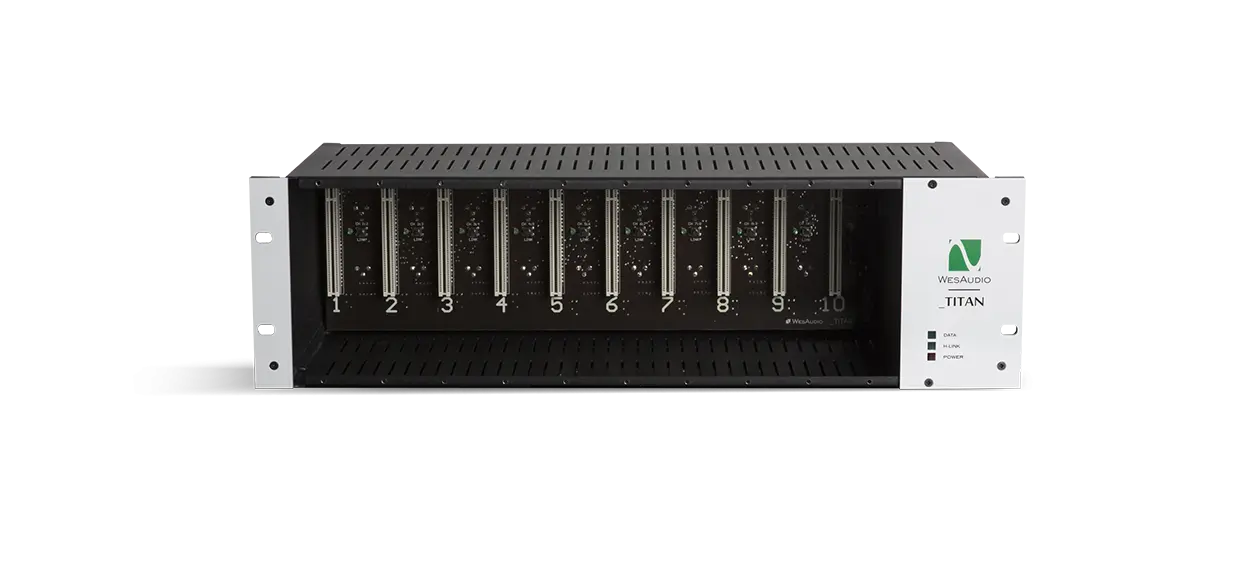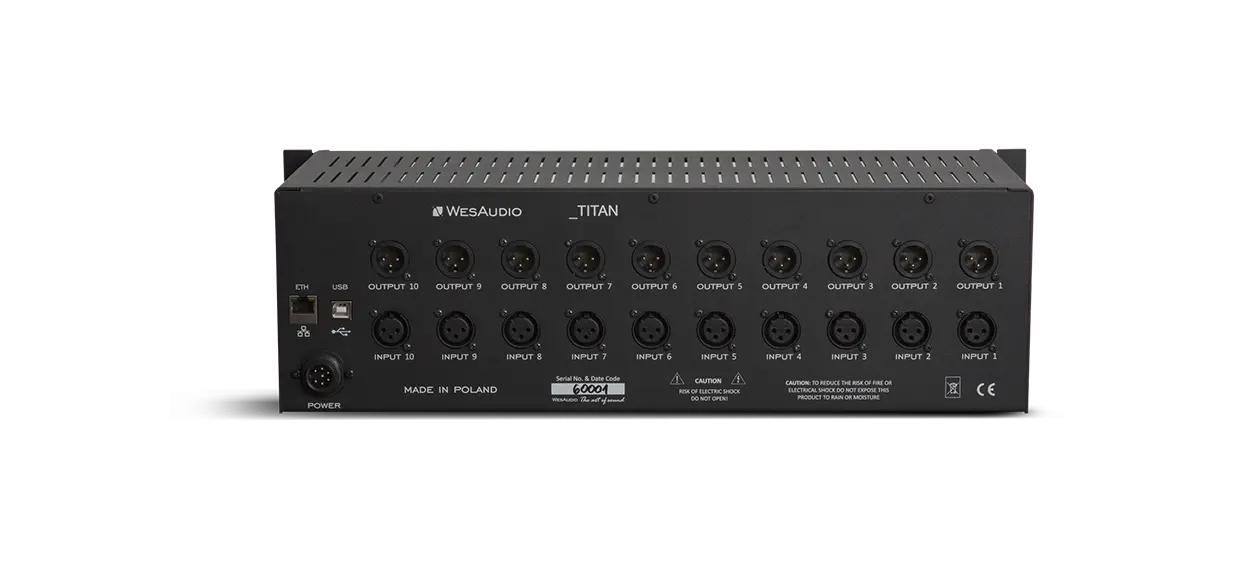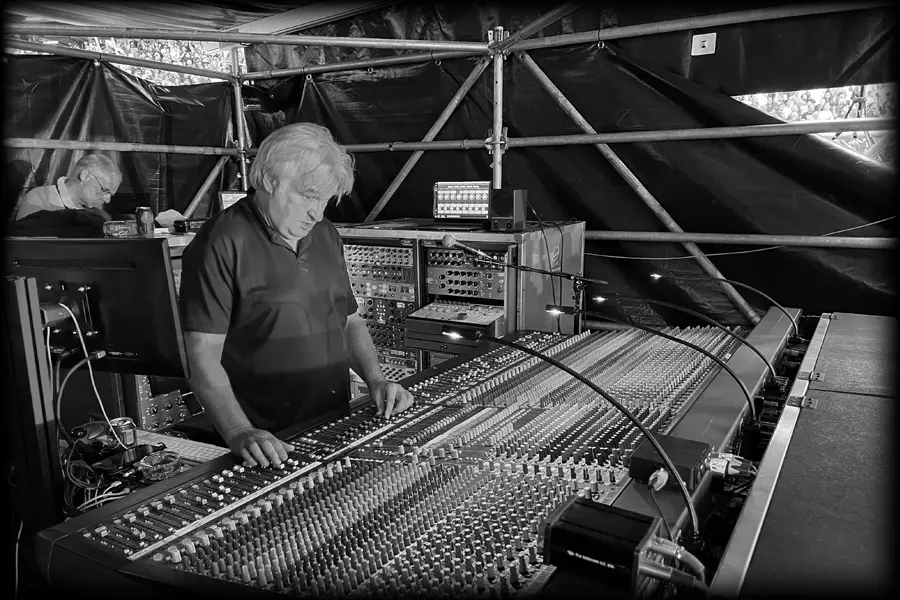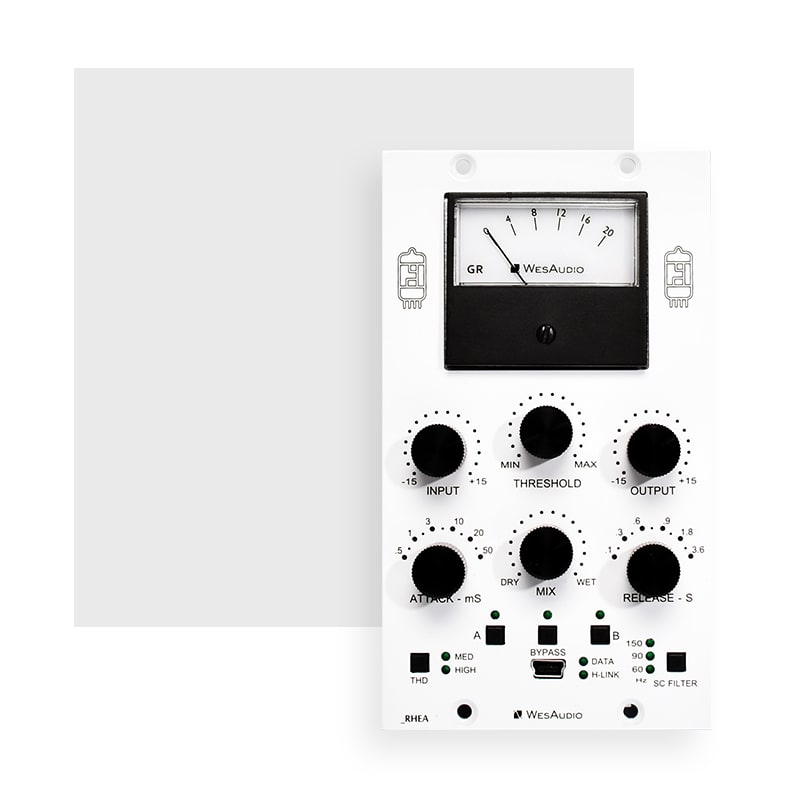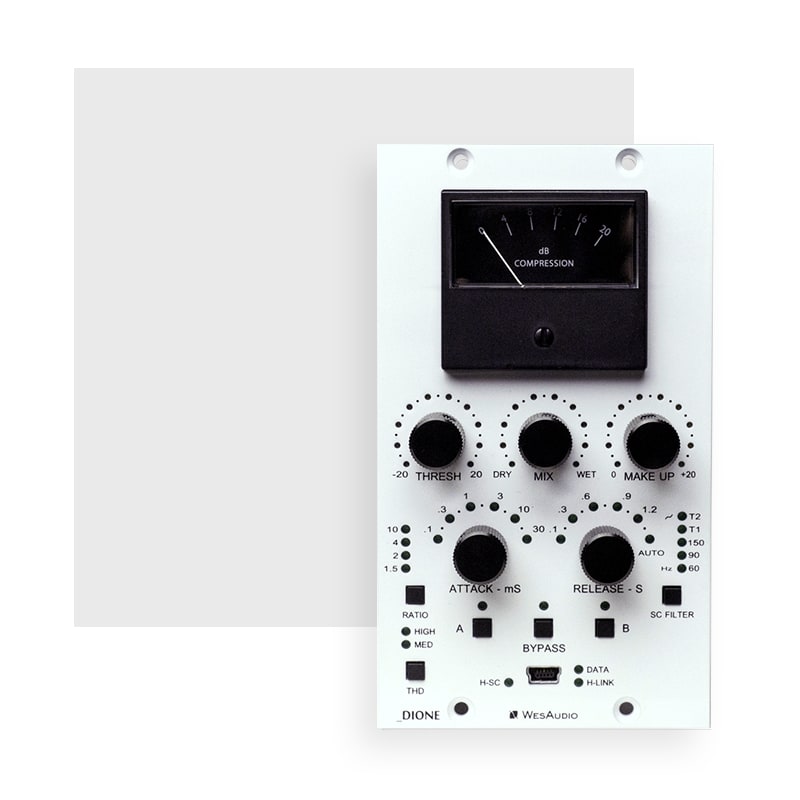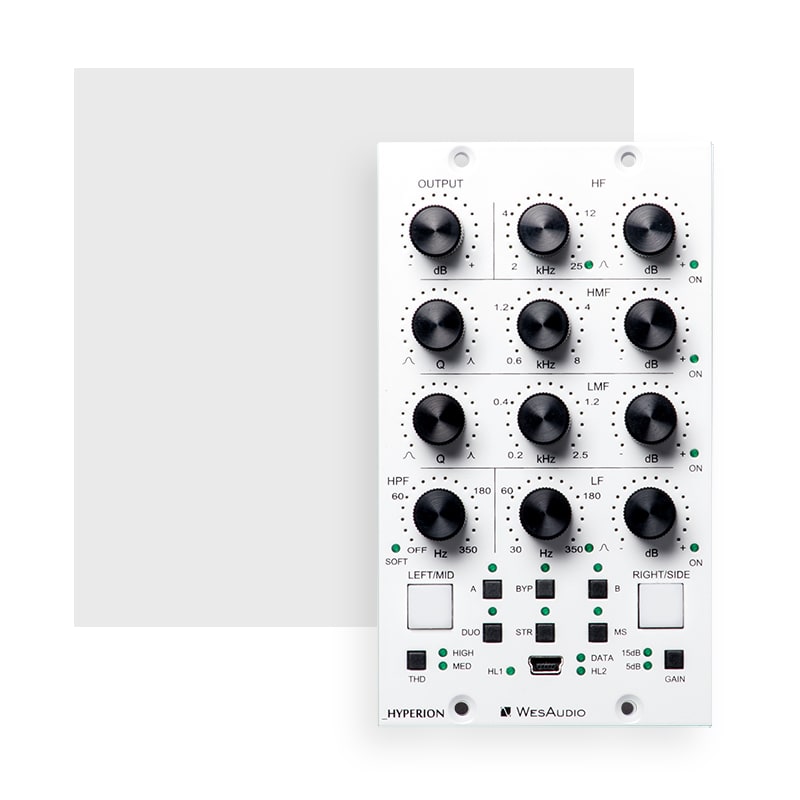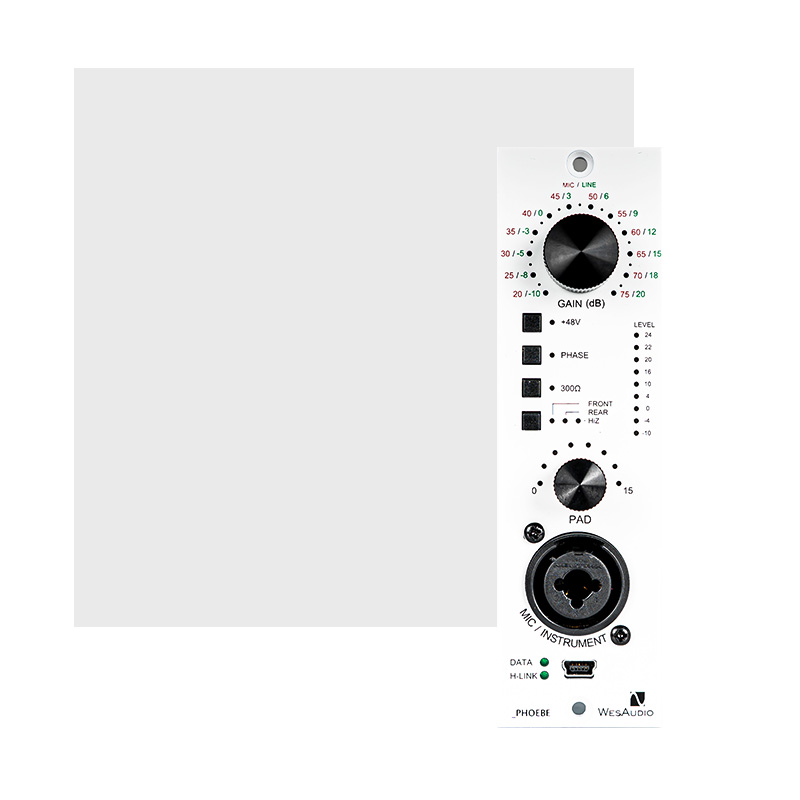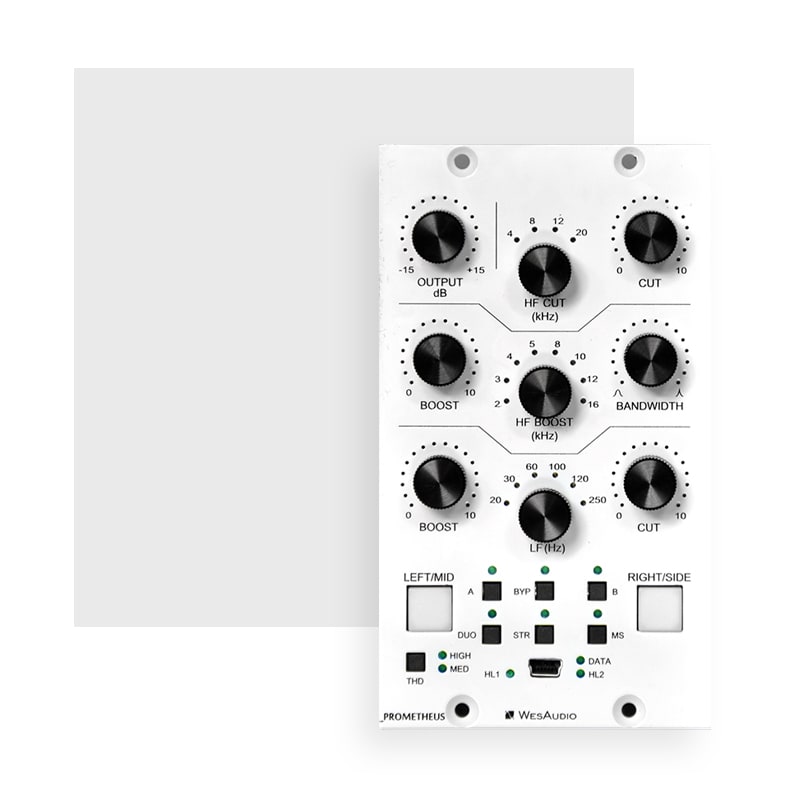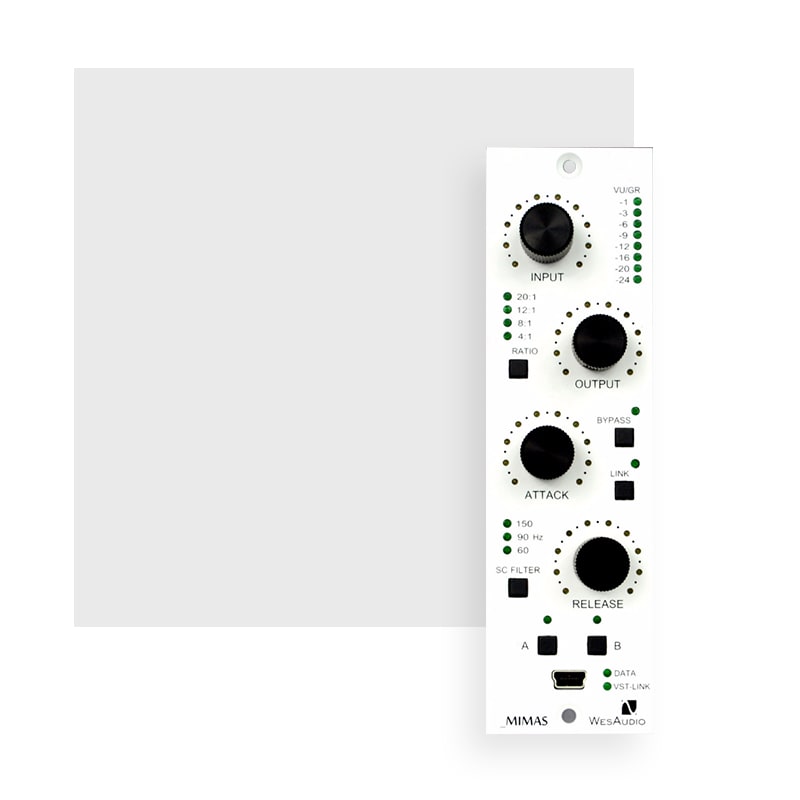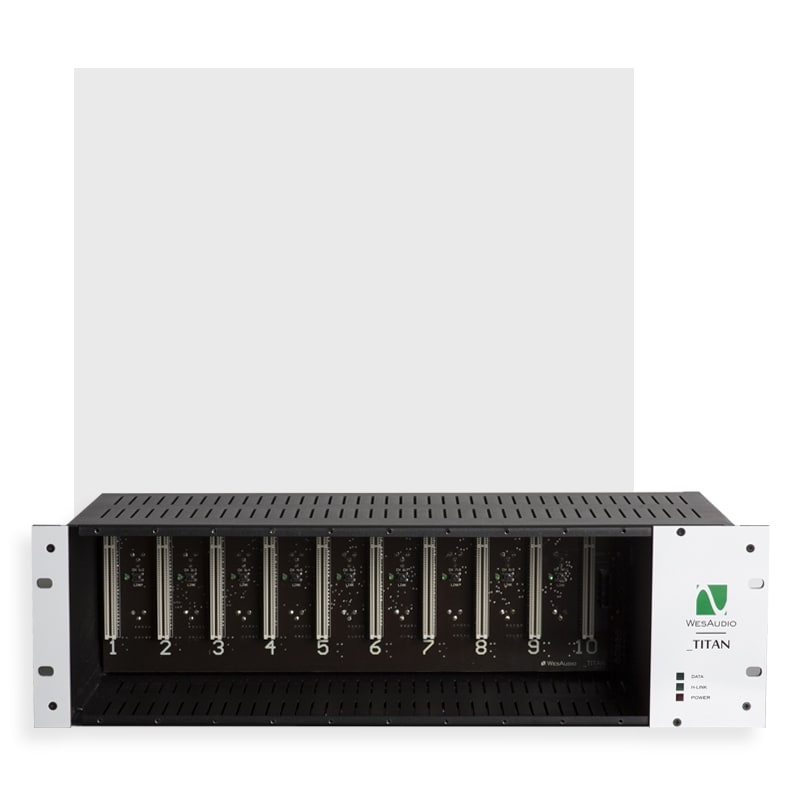_TITAN
NG500 RECALL CHASSIS
_TITAN is complete recall system designed to provide total integration with your beloved analogue equipment.
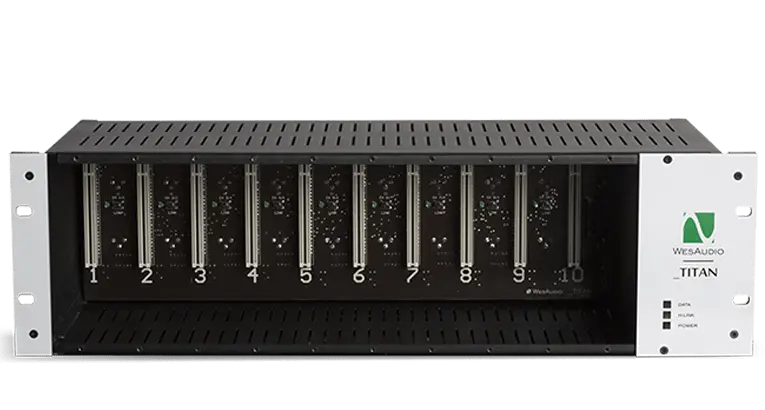
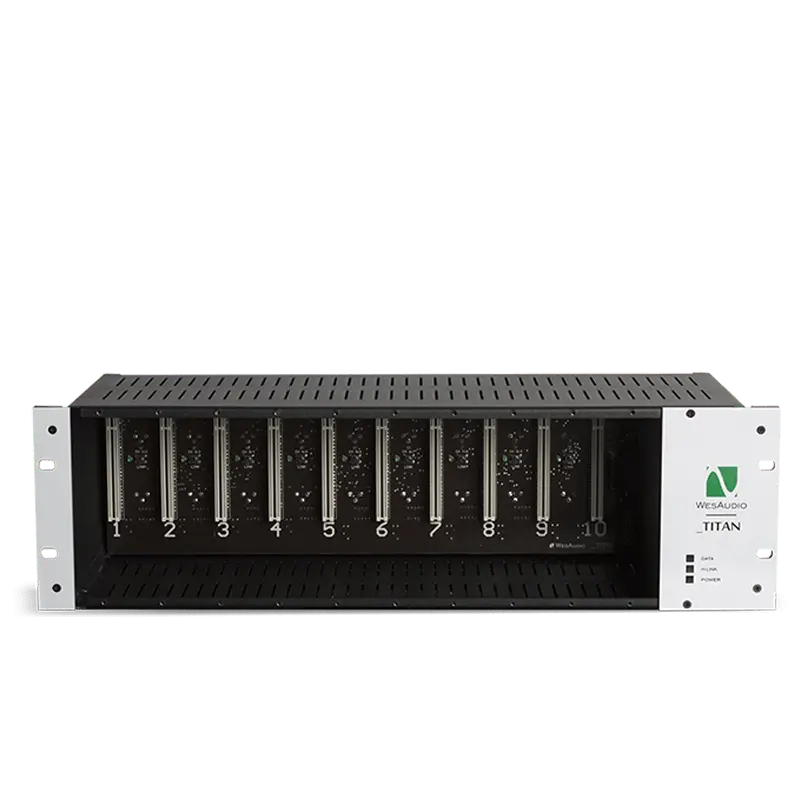
_Titan
NG500 recall chassis
_TITAN is complete recall system designed to provide total integration with your beloved analogue equipment. It extends 500 series connector with additional pins where modules can be designed to support digital recall or any other vendor specific functionalities. This extension is part of new open standard “ng500” – “Next Generation 500 series” which allows other manufacturers to design and implement digitally controlled analog devices.
We are proud to present _TITAN – Future of analog processors.
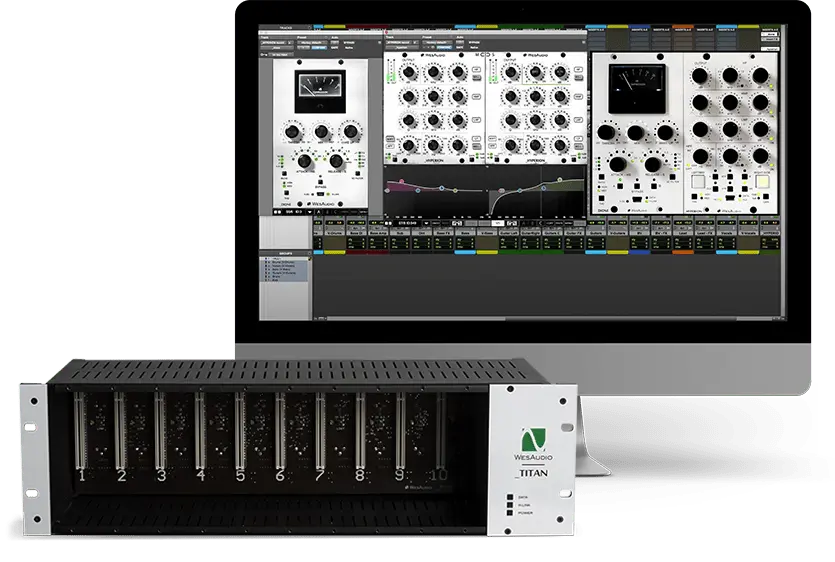
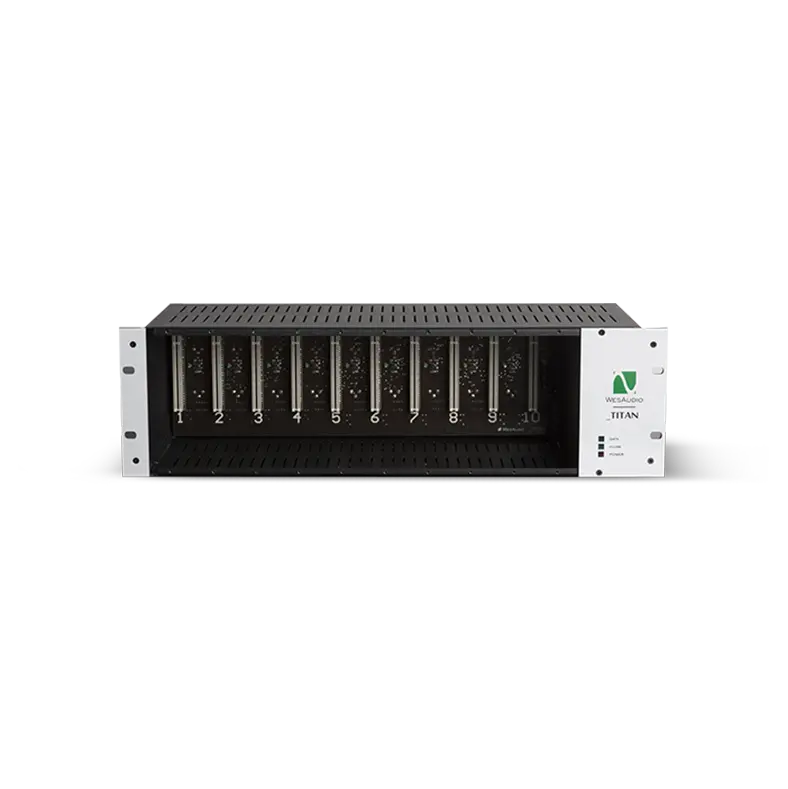
Main Features
_TITAN
NG500 RECALL CHASSIS
We are proud to present _TITAN – Future of analog processors.
HIGH END LINEAR POWER SUPLY
Linear power supply capable to deliver 5A of power will bring sound of your units to the next level!
10 SLOTS FOR 500-SERIES or ng500-SERIES MODULES(*)
_TITAN can host standarized 500 series module (Please read Important Note below).
Of course it was designed to recall up to 10 units with signle USB or Ethernet connection!
(*) Important note about 500 series extension: ng500
CONTROL ALL MODULES THROUGH ONE CONNECTION!
_TITAN allows to control/recall all hosted modules through one connection:
1) USB – for direct connection with your workstation.
2) Ethernet – dedicated LAN connection to access all devices in your local network.
OPEN SPECIFICATION
REMOTELY CONTROLED STEREO LINKS
_TITAN provides simple standalone application to change status of stereo links between modules.
No more problems with accessing your chassis configuration!
IAC – INTERNAL AUDIO CONNECTOR
At slot number 10, _TITAN implements special connector, which routes all audio signals from and to, slots 1 – 8.
This allows future integration with audio interface modules, analog summing modules or patchbays.
INPUT source for any slot is implemented through analog relays, and it is configurable through standalone application. This prevents two different signal sources to be routed to the same module.
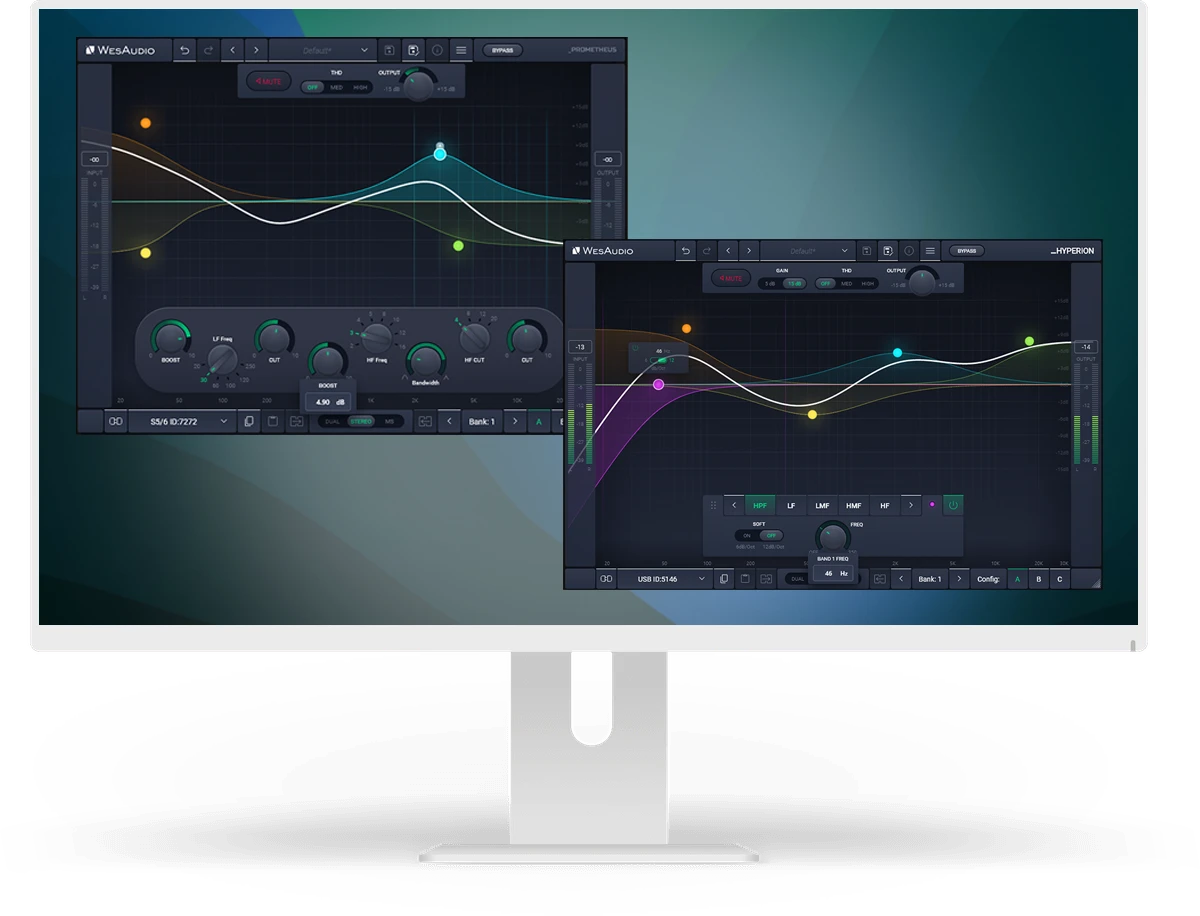
APP FOR MAC AND PC
Digital control features for fully analog units.
Specification
_Titan specification
| Power consumption (empty frame) | 7W |
| Unit dimensions | 135x483x190 mm |
| Box dimensions | 274x550x382 mm |
| Unit weight | 4,2 kgs |
| Power supply weight | 1,75 kgs |
| Box weight | 7,85 kgs |
| Warranty | 2 years |
User Manual
Download _Titan User Manual
_TITAN VIDEO STORIES
Watch the product video
FAQ
Frequently Asked Questions
If the module doesn’t react to any changes to the knobs on the front panel, the first necessary step is to rewrite firmware into the flash memory (Factory reset procedure re-writes firmware into internal flash memory – it doesn’t affect anyhow unit configuration). To proceed with factory reset, please follow below steps:
- Connect unit either:
- Through front panel USB socket,
- Or keep the unit in ng500 chassis – _TITAN, but please note that chassis has to be connected to the PC/MAC either via USB or Ethernet cable.
- POWER OFF your 500 series chassis.
- Depends on the product please press following front panel control:
- _MIMAS – RATIO button,
- _DIONE – RATIO button,
- _RHEA – THD button,
- _PROMETHEUS – HIGH CUT encoder (top-right encoder),
- _HYPERION – LMF GAIN encoder,
- _CALYPSO – MENU encoder.
- While keeping this control (button/encoder) pressed, POWER ON your 500 series chassis.
- LEDs should present a strange pattern.
- Now open GConManager:
- WIN: C:/Program Files (x86)/WesAudio/GConManager.exe
- MAC: /Applications/WesAudio/GConManager.app
- Or click on the WesAudio “Tray” icon, and select “Open GConManager”
- Go to _UPGRADE application.
- Hit start!
If the module doesn’t react to any changes to the knobs on the front panel, the first necessary step is to rewrite firmware into the flash memory (Factory reset procedure re-writes firmware into internal flash memory – it doesn’t affect anyhow unit configuration). To proceed with factory reset, please follow below steps:
- Connect the unit to either USB or Ethernet.
- POWER OFF your unit.
- Depends on the product please press following front panel control:
- ngBusComp – far left Ratio on Channel 1 (Ratio “-”),
- ngTubeEQ – THD encoder on Channel 1,
- ng76 – “IN MODE” button,
- ngLEVELER – use a small screwdriver and press button available on the rear panel via a small hole in the chassis.
- While keeping this control (button/encoder) pressed, POWER ON your unit.
- LEDs should present a strange pattern.
- Now open GConManager:
- WIN: C:/Program Files (x86)/WesAudio/GConManager.exe
- MAC: /Applications/WesAudio/GConManager.app
- Or click on the WesAudio “Tray” icon, and select “Open GConManager”
- Go to _UPGRADE application.
- Hit start!
This is a very common issue and in most cases the root cause lies in the connection of the unit and audio interface. If that happens it should be checked if audio interface input isn’t connected to the chassis input and if audio interface output isn’t connected to chassis output. As this initially would seem to be entirely wrong and shouldn’t work at all, as all our units implement “True Bypass” via relays, the unit will pass a signal when the bypass is engaged. The reason for that is that the relay is in fact hard wiring input to the output, and thus the unit will pass the signal, as it doesn’t go through any active circuit of the unit.
This is actually how it is supposed to work, so after the plug-in instance is created, please use a small triangle button which usually is on the bottom side of the plug-in and select proper HW ID from the drop down menu. If the drop down menu doesn’t list any hardware units, please check Your connectivity and other possible root causes in this FAQ.
This is a wide topic, and there may be at least several root causes, but there are few things that should be checked. However, the first and most important thing is to double check that GConManager doesn’t list this device in the _CONFIG app. If this is the case, it means that WesAudio unit can’t connect on the OS level, and some of the below steps may help:
- First of all double check if module connection is properly executed, this procedure is described here.
- USB specification indicates that USB 2.0 works up to 5 meters. This is however not entirely true, as it strongly depends on the peripherals that unit is connected to. Even if our modules are USB 2.0 compatible, your USB port could support USB 3.0 – USB is a backward compatible protocol, so it may be that USB 3.0 cable length limit should be considered which is 2 meters. We would recommend having a USB cable up to 2 meters to remove those limitations from the equation.
- USB HUB is very common root cause to those problems, if module can’t connect via HUB – just for the sake of the test, it is mandatory to connect unit directly to PC/MAC to verify if the problem isn’t caused by it.
- Please note any system warnings attached to “WesAudio Tray Icon”.
As USB controllers have limited capacity it could be a reason for random unit disconnection. Usually, it happens when a lot of USB devices are plugged into the PC/MAC. The usual behavior would be that the unit works normally, and after reboot it doesn’t, but it strongly depends on the OS implementation so exact reaction could be a little bit different. If this is suspected, just for the test, it would be good to disconnect most of the devices from the USB ports, reboot PC/MAC and double check the connectivity from stability point of view. If it leads to the conclusion that this is the root cause of the problem, we would recommend using a decent USB hub, and ideally a TB/USB dock station which tends to offload a lot of responsibilities from our PC/MAC.
If the unit was working fine, and suddenly it couldn’t connect (it is not visible in the GConManager _CONFIG app) that could lead to the conclusion that some devices were added to our USB line, and we could have problems with the USB controller inside PC/MAC. In that case please check the description in the above “Unit disconnects by itself”.
GConManager in Admin mode enables special functionalities which are used during WesAudio units calibration.
OSX:
- Please open terminal.
- Copy-Paste following command:
open /Applications/WesAudio/GConManager.app --args --admin
WINDOWS:
- Go to “START” and open “Command Line”.
- copy paste this command:
"c:\Program Files (x86)\WesAudio\GConManager.exe" --admin

